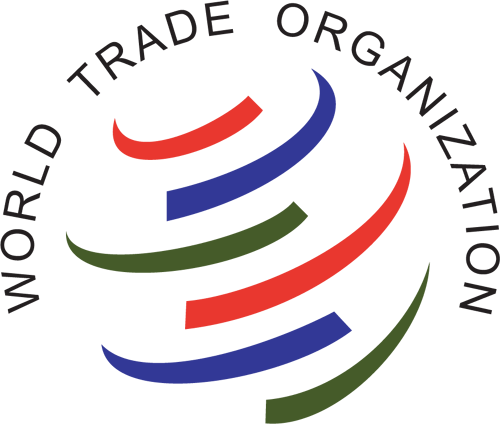Canada Education System
To study in Canada is to open up a gateway to an array of opportunities. Canada Education System… The post Canada Education System appeared first on Leverage Edu.


To study in Canada is to open up a gateway to an array of opportunities. Canada Education System is very inclusive and detailed to help students in their holistic development. With picturesque locations, cross-ethnic communities and some of the most elite universities in the world, the Canadian education system is highly rated across the globe. This was also visible in an OECD-conducted test where the North American country was named alongside Norway, Finland, and Singapore in top-performing education systems. Further, the affordable cost of studying in Canada makes it an unparalleled destination to study for international students as well. In this blog, we will shed light on the education system followed in Canada and its essential components.
| Country | Canada |
| Capital | Ottawa |
| Official Languages | English and French |
| Population | 35 million |
| International Students | 200,000+ |
| Academic Year | September – June |
| Currency | Canadian Dollar (CAD) |
Know Everything About the Upcoming Intakes in Canada for 2021-2022
Canada Education System
Nearly half of Canada’s 35 million inhabitants dwell in the three major cities, Toronto, Montreal, and Vancouver, which have emerged as the most popular study abroad destinations in the country. But, whether you like the fast-paced city life or the more laid-back atmosphere of smaller communities near nature, there are plenty of Canadian study places to choose from! No matter where you study, you’ll enjoy immersing yourself in Canadian culture. Despite its harsh terrain, Canada is a well-developed country with excellent economic and human development rankings. Not surprisingly, Canada has been named as one of the best places to study abroad for the past two years in a row.
The Canada education system is proud of its ability to be a world leader in research while staying accessible and varied. Canadian degree programmes may appear more flexible when compared to other higher education systems. Students have some say over the classes they take, regardless of the degree they seek. As a result, depending on the discipline, Canadian students have greater flexibility over their workload and what courses they will study. Furthermore, students can pick from over 200 colleges and universities to pursue a bachelor’s, master’s, or doctoral degree. A bachelor’s degree typically takes 3-4 years to complete, but a master’s degree can be finished in 1-2 years. The time it takes to earn a doctoral degree varies greatly, but it can take anywhere from four to six years on average. It’s also worth noting that tuition expenses are the responsibility of all students, whether Canadian and international.
Study Levels in Canada Education System
Canadian study levels include every education possibility that the world has. From pre-primary to PhD, Canadian schools teach everything in different streams.
| Study Level | Duration | Description |
| Secondary Schools | Foundational- 12 Years | This is the basic education till class 12th where students learn about different disciplines, build holistic learning experiences |
| Certificates and Diploma | 6 months- 2 years | These are the courses that are available on vocational courses and a have less weightage in academia than bachelors degree |
| Bachelor’s Degree | 3 to 4 years | The bachelor’s degree is obtained by students in different but concentrated disciplines. |
| Bachelors’ Degree Honors | 4 years | This degree is obtained for specialization in a single subject |
| Post-graduate Diploma | 1-2 year | Post bachelor diploma on academic or vocational courses |
| Masters Degree | 1-2 years | Postgraduate specialization on a particular subject or discipline |
| PhD | 4-7 years | A doctorate and research program for students who write a dissertation gaining expertise on a subject |
| Post-Doctoral Programs | No time limit | Research-based program |
Canada School System
Consisting of primary and secondary schooling, a student enrolled in the pre-higher Canada education system goes through the elementary phase which starts at a very young age of 4-6 (depending on the respective states) and extends up to class 12. Typically, the system makes no distinction between middle and high school. Further, many institutions offer students the option to graduate with an International Baccalaureate degree, a qualification treated equally throughout North America.
Canadian University System
The Higher Studies In Canada follows the trimester’s system that divides the academic year into three sessions namely, the fall session (mid-September to December/January); the Winter session (mid-January to April) and a summer session falling between the end of April to July. In general, Canadian universities offer the conventional bachelor’s, master’s, and doctoral degrees which are considered equivalent to degrees in the USA, UK, Australia and in European countries.
Types of Higher Education Institutions
To understand the Canada education system, it is important to go through the various categories of institutions, both public and private, which fulfil the educational needs of students. This list consists of technical institutes, language schools, and universities that witnesses huge enrollment not only from North American applicants but also internationally.
Universities
Comparable to the institutions of higher education throughout the world, Canadian universities offer highly rated STEM courses as well as programs in Business and Management, Social Sciences, Arts and Humanities and Languages amongst others. The list of universities at the end of the article delineates a few highly rated ones in Canada.
University Colleges
An integral component of the Canada education system, university colleges offer a limited number of academic or applied sciences programs. In addition to that, these also run Second Language, university transfer, and bridge programs amongst others. This system of education is considered an alternative to traditional universities.
Technical Institutes and Colleges
Focusing on professional learning and technical knowledge dissemination, these institutes and colleges offer short term programs in a specific area of study namely, IT, Hospitality, travel and tourism, Business, etc. The Association of Canadian Community Colleges is a leading, pan-Canada consortium of universities that includes a wide range of technical institutes.
Career Colleges
Another integral component of the Canada education system is career colleges. These tertiary institutes offer short-term training programs in film studies, computer/IT, entertainment, graphic design, animation, fashion designing, hospitality, and other related fields. Generally, career colleges are privately owned and are regulated by a competent Canadian body.
Languages Schools
Since English and French are the official languages of Canada with many states using french, languages schools help international students acculturate into Canada. They typically offer courses on English as a Second Language (ESL), French as a First Language (FSL), etc.
Popular Courses in Canada
Top Universities in Canada
There are several universities whose courses you can consider if you are planning to study in Canada. In addition to the given educational institute’s, you can also read about the best colleges in Canada which follow the Canada education system.
| University | QS Global Rankings 2021 |
| University of Toronto | =25 |
| McGill University | =31 |
| University of British Columbia | 45 |
| University of Montreal | 118 |
| University of Alberta | 119 |
| McMaster University | 144 |
| University of Waterloo | =166 |
| Western University | =203 |
| University of Calgary | =246 |
| Dalhousie University | =272 |
How to Apply?
After understanding the Canada education system, you surely must be wondering about applying to a Canadian university to kickstart your study abroad journey. The below-mentioned steps will help you out with the same:
Step 1: Choose a Program
Begin by selecting the appropriate degree programme for you. In Canada, almost every degree programme will be taught in English. Degrees are available in a wide range of areas, whether you are an undergraduate or graduate student. Canada is worldwide known for a wide range of programmes, including those in the humanities, business, and science. Take the help of our awesome AI Course Finder to make your process simpler!
Step 2: Prepare the Paperwork
A statement of purpose, a recommendation letter, and a portfolio of past work, if relevant, are among the fundamental documentation that is typically needed by all colleges. Universities will also demand all official academic transcripts from your secondary school if you’re starting a bachelor’s degree, or from your prior university if you’re pursuing a master’s degree or higher. If you are not a natural English speaker, you may additionally be required to pass an English proficiency exam like IELTS or TOEFL.
Step 3: Check for Specific Admission Requirements
Specific documents may be required depending on the university. For detailed admission criteria, always visit the university website, and if you have any concerns, contact the appropriate university office. In Canada, the university for which you are applying handles applications and admissions. Prospective students are encouraged to apply to many programmes and colleges at the same time.
Step 4: Submit Your Application
The majority of university applications in Canada are submitted using an online application system. Application forms are accessible on particular university websites and are frequently accompanied by an application fee. After you’ve finished filling out the application form, attach the required papers or prepare to mail them to the university.
Step 5: Wait for Your Offer Letter
Admissions decisions will be revealed within 3-6 weeks after submitting your application and all the necessary documents. Post receiving your offer letter from the selected university, you’ll be asked to pay the tuition fees for the first semester to secure your seat.
Step 6: Apply for Student Visa
If required, begin the student visa application procedure as soon as you are accepted into a Canadian university. Do not delay because the process might take up to 60 days and necessitates the submission of numerous crucial papers. Students from countries other than Canada will be denied entry and stay in Canada if they do not have the necessary visa.
Step 7: Arrive in Canada
It’s time to start your travel in Canada after you’ve been accepted to a university and obtained the appropriate visa! Consider the cost of living in Canada and how much money you will need. Once you have that, you may start looking for a place to stay. Finally, it’s time to book your flight to Canada and arrive in your new hometown! There are several sites and activities to enjoy your student life in Canada regardless of where you stay.
Take help of our Leverage Edu experts to kickstart your Study in Canada journey in 2022! Call us at 1800572000 NOW!
Why study in Canada?
Canada comes out on top of all the many choices available to students for their overseas education. In fact, the number of international students going to this country has risen dramatically over the last decade. Given below are the Top 5 Reasons to Study in Canada.
World Renowned Universities
Canadian private and government sectors support research in a number of cutting-edge fields, including medicine, agriculture, computer technology, telecommunications, and environmental science. A study in Canada is internationally regarded as the Canadian universities put a lot of emphasis on research in post-secondary education and high academic standards.
Enjoy an Excellent Quality of Life
According to QS World University Rankings, three Canadian cities, Toronto, Montreal and Vancouver, made the list of the top 50 student cities. The ranking was based on several criteria, including affordability, the diversity of the student population, and employers’ perception of graduates on the job market.
An Exciting and Beautiful Place to Live
Everyone studying abroad should remember that there is a lot of life outside of campus, too. Whether you enjoy spending time or being active outdoors, or exploring nature and seeing an amazing assortment of wildlife interests you, even if you are an adventure lover, you don’t have to travel far in Canada to find it. It is a beautiful country where you can enjoy a lush coastline of British Columbia, the big skies of the prairies, the majestic Rocky Mountains of Alberta, St. Lawrence, and the rugged hills, the ‘maple sugar country’ in the Great Lakes and attractive coastline of the Atlantic Provinces. In Canada, there’s usually an eyeful of natural beauty.
Employment Opportunity
During studies, students are permitted to take up part-time jobs both on-campus and off-campus. No work permit is needed to work on campus and students are allowed to work up to 20 hours/week. There are a number of part-time jobs available off-campus like jobs in Hotels, hostels, general labour, Tutor etc. After graduation, there is a vast number of employment opportunities related to the technical domain. Also, students with knowledge and skills get placements easily in top companies with their dream job. Job prospects are strong for international students.
Immigration Options
When you travel abroad to study, you usually get temporary status in the country you’re studying in. That status usually expires when your program ends, so you have to return home when you graduate.
Canada Education System Rankings & Facts
- As per CEOWorld, Canada ranks #8 in the top countries in the world for education. Its quality index has been rated as 69.5 and the opportunity index is 60.64. This ranking was on the basis of attributing a well-developed public education system, top-quality education and whether respondents would consider studying in the country.
- The annual Best Countries Report, produced by US News & World Report, BAV Group, and the University of Pennsylvania’s Wharton School, dedicates an entire section to education. The study polls thousands of individuals in 78 nations and rates them based on their replies, with Canada ranking #4 for its well-developed and high-quality education system.
- According to the Organization for Economic Cooperation and Development, Canada is one of the top three countries in terms of per capita spending on public postsecondary education.
- India has the largest population of overseas students in Canada.
- According to a CBIE survey, 96% of students suggest Canada for future education.
- The country spends 6% of its GDP on education, which is more than the average for other OECD nations.
- Universities perform $1.2 billion in research for the non-profit sector each year, a figure that has nearly tripled since 2000.
- Students from India make up the majority of international students in Canada.
Academic Year
Just like other foreign countries, Canada education system also has different intake seasons and months, and the admission process almost happens throughout the year. The winter session is divided into two intakes. The first winter intake is from September to December and the second intake is from January to April. Some universities offer special summer programs that are open between May to August. Few Canadian universities also admit students all year round.
Teaching Standards
Canada is one of the top countries to study abroad. The teaching method and quality of education are incomparable. While most of the universities are focused on mugging up the theoretical knowledge, universities in Canada have a slightly different approach and different styles of teaching. From elementary to higher education studies in Canada, the courses are a unique blend of conceptual learning methods and applied constructive methods. With the help of learning in labs gets real hands-on experience, tutorials help students in understanding the notions, guest speakers help in building network and internship opportunities give the industry exposure.
Cost of Study
If we compare the cost of study in UK, USA or any other developed country to Canada then Canada has far less cost of study. The courses in the field of arts, humanities, social sciences, literature are affordable and STEM courses are a bit expensive. Pursuing a popular and in-demand course MBA from Canada can cost CA$42,000. Other courses can cost between CA$7000 and CA$29,000 per year.
Scholarships
Canadian universities offer various scholarships to their international student body that can cover tuition fees, accommodation, travel expenses, and much more. The scholarships help students to be a part of their dream university without putting the burden on their bank balance. Some of the popular scholarships are listed below for undergraduate, postgraduate, and doctorate degrees:
- Canadian Commonwealth Scholarship and Fellowship Plan
- Shastri Indo – Canadian Institute
- Ontario Graduate Scholarship Program
- Ontario Trillium Scholarship
- University of Manitoba Graduate Fellowship
- University of Calgary Graduate Awards and Scholarships
- UBC Graduate Global Leadership Fellowships
- Trudeau Foundation Scholarships
Student Visa
If you are a foreign national, that is, you are not a Canadian citizen or permanent resident, you will need a study permit before you may legally enter Canada to study. International students with study visas can attend Designated Learning Institutions (DLI). Make sure you have all of the relevant paperwork before applying. In general, a study permit is effective for the duration of your studies plus an additional 90 days, allowing persons to prepare a permission extension or depart Canada. Documents required to apply for the student visa:
- Acceptance letter from Designated Learning Institute (DSI)
- 2 Recent passport-sized photographs
- Valid Passport
- Statement of Purpose
- Proof of financial support up to CAD 11,000/ annum
Work Permits
Since the student visa allows for an extra 90-day stay in Canada after graduation, students can seek jobs and stay in Canada once their visa is extended. This also opens up the possibility of obtaining a Permanent Residency in the future. There are several sorts of work permits available in Canada, including:
- Post-Graduation Work Permit (PGWP): Only students from Designated Learning Institutes are eligible to apply for this work permit within 180 days after receiving their results. It can take up to 85 days to process, and the validity depends on the length of the programme.
- Open Work Permit: As the name implies, it is available to anybody. This permit enables the holder to work for any employer in Canada.
- Employer Specific Work Permit: This permit requires an offer letter from a Canada-based firm/organization.
FAQs
Canada education system is the third-best education system in the world.
Canada education system provides free basic education to its residents and provides various scholarships to international students.
Both have their pros and cons, USA education system offers the latest technology and systems whereas Canada education System has a better post-course completion prospectus.
Yes, Canada accepts degrees from other countries.
UK is home to the best-ranked universities in the world but the Canada education system has affordable tuition fees and living expenses.
Canada Education system is considered one the best globally, degrees accepted worldwide to the overall low cost of tuition fees with compromising the quality of education are one of the reasons Canada degrees are worth it.
Hopefully, this article served as a guide for you to understand the Canada education system. If you are looking to study, work or settle in Canada but are not sure about how to get started with it then the expert counselors at Leverage Edu can assist you in the application process so that you can take the right step towards kickstarting your career.
The post Canada Education System appeared first on Leverage Edu.










![NYSC Orientation Course Date for 2024 Batch “A” Announced [Stream II]](https://allschool.ng/wp-content/uploads/2024/04/1713251491241.webp)